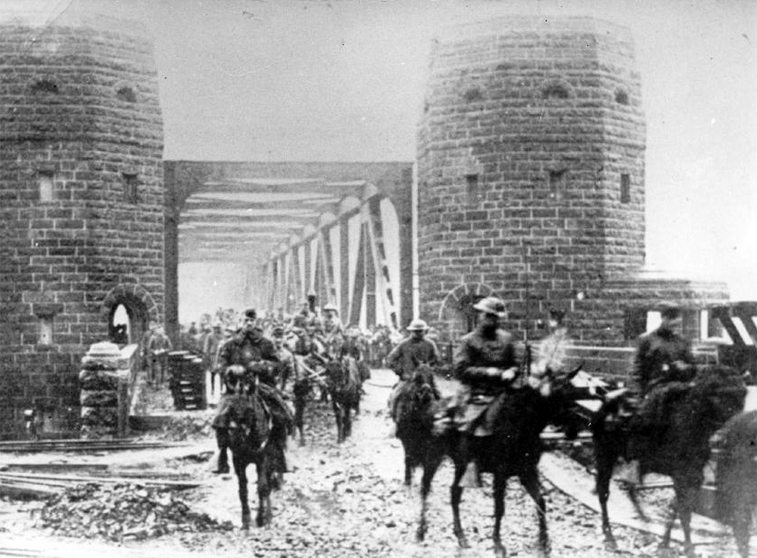|
Ludendorff Family
Ludendorff is a surname. Notable persons with that name include: * Erich Ludendorff (1865–1937), German general * Hans Ludendorff (1873–1941), German astronomer * Mathilde Ludendorff (1877–1966), German teacher and psychiatrist See also * Ludendorff Bridge, a former railway bridge across the Rhine in Germany, named after Erich Ludendorff * ''Ludendorff'', the former German name of the Prussian village Kruszewnia Kruszewnia is a village in the administrative district of Gmina Swarzędz, within Poznań County, Greater Poland Voivodeship, in west-central Poland. It lies approximately southeast of Swarzędz and east of the regional capital Poznań. The ..., now in Poland {{surname German-language surnames ... [...More Info...] [...Related Items...] OR: [Wikipedia] [Google] [Baidu] |
Erich Ludendorff
Erich Friedrich Wilhelm Ludendorff (9 April 1865 – 20 December 1937) was a German general, politician and military theorist. He achieved fame during World War I for his central role in the German victories at Liège and Tannenberg in 1914. Following his appointment as First Quartermaster-general (german: Erster Generalquartiermeister) of the Imperial Army's Great General Staff in 1916, he became the chief policymaker in a ''de facto'' military dictatorship that dominated Germany for the rest of the war. After Germany's defeat, he contributed significantly to the Nazis' rise to power. Erich Ludendorff came from a family of the minor nobility in Ludendorff, (now Kruszewnia), located in the Prussian province of Posen. After completing his education as a cadet, he received his commission as a junior officer in 1885. Later in 1893, Ludendorff was admitted to the prestigious German War Academy and was recommended by its commandant to the General Staff Corps only a year later. ... [...More Info...] [...Related Items...] OR: [Wikipedia] [Google] [Baidu] |
Hans Ludendorff
Friedrich Wilhelm Hans Ludendorff (Dunowo, 26 May 1873 – Potsdam, 26 June 1941) was a German astronomer and astrophysicist. He was the younger brother of General Erich Ludendorff. After studying physics, mathematics and astronomy in Berlin, he started to work as assistant at the Hamburg observatory in 1897. The following year he changed to the Astrophysical Observatory of Potsdam, where became observator (1905) and chief observator (1915). From 1921 until his retirement in 1938 he was director of the observatory. Between 1920 and 1930 he belonged to the board of the Astronomical Society. He authored several astronomical and astrophysical works (the first was about asteroids, following his graduation in 1896), but is better known for the Ludendorff Catalogue, that lists the most important stars in the globular cluster Messier 13, published in 1905. In 1908 he established the binary character of the star Mizar B (period: 175.6 days), together with American astronomer Edwin Brant ... [...More Info...] [...Related Items...] OR: [Wikipedia] [Google] [Baidu] |
Mathilde Ludendorff
Mathilde Friederike Karoline Ludendorff (born Mathilde Spieß; 4 October 1877 – 24 June 1966) was a German psychiatrist. She was a leading figure in the Völkisch movement known for her unorthodox (esoteric) and conspiratorial ideas. Her third husband was General Erich Ludendorff. Together with Ludendorff, she founded the Bund für Gotteserkenntnis (Society for the Knowledge of God), a small and rather obscure esoterical society of theists, which was banned from 1961 to 1977. Early life and education Mathilde Spieß was born in Wiesbaden, Hesse in central Germany, the daughter of Prof. Dr. phil. Bernhard Spieß, from 1876 until 1906 teacher at the Wiesbaden Gymnasium.Karla Poewe, ''New religions and the Nazis'', London: Routledge, 2006, , p. 82. She attended a private and a public school for girls. Despite their modest means, the parents were able to give their daughters a practical professional education, which was unusual at the time. From 1893 until 1895 she trained t ... [...More Info...] [...Related Items...] OR: [Wikipedia] [Google] [Baidu] |
Ludendorff Bridge
The Ludendorff Bridge (sometimes referred to as the Bridge at Remagen) was in early March 1945 a critical remaining bridge across the river Rhine in Germany when it was captured during the Battle of Remagen by United States Army forces during the closing weeks of the European part of World War II. Built in World War I to help deliver reinforcements and supplies to the German troops on the Western Front (World War I), Western Front, it connected Remagen on the west bank and the village of Erpel on the eastern side between two hills flanking the river. Midway through Operation Lumberjack, on 7 March 1945, the troops of the First United States Army, 1st U.S. Army approached Remagen and were surprised to find that the bridge was still standing. Its capture, two weeks before Field marshal (United Kingdom), Field Marshal Bernard Montgomery's meticulously planned Operation Plunder, enabled the U.S. Army to establish a bridgehead on the eastern side of the Rhine. After the U.S. force ... [...More Info...] [...Related Items...] OR: [Wikipedia] [Google] [Baidu] |
Kruszewnia
Kruszewnia is a village in the administrative district of Gmina Swarzędz, within Poznań County, Greater Poland Voivodeship, in west-central Poland. It lies approximately southeast of Swarzędz and east of the regional capital Poznań. The village has a population of 151. It was the birthplace of the German general Erich Ludendorff and had his name from 1939 to 1945. People * Erich Ludendorff Erich Friedrich Wilhelm Ludendorff (9 April 1865 – 20 December 1937) was a German general, politician and military theorist. He achieved fame during World War I for his central role in the German victories at Liège and Tannenberg in 1914 ... (1865–1937), German general References Kruszewnia {{Poznań-geo-stub ... [...More Info...] [...Related Items...] OR: [Wikipedia] [Google] [Baidu] |

